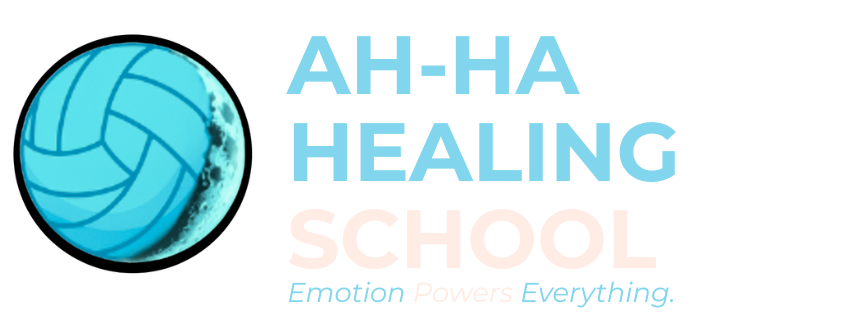
Introduction: Why “Perfect Parenting” Is Hurting Our Kids
We live in a world where parents are bombarded with advice on how to raise the “perfect child.” Social media is filled with highlight reels of kids’ achievements, while parenting books promise formulas for academic success, emotional stability, and model behavior. Yet, despite our best intentions, anxiety and emotional struggles among children and teens are on the rise.
What if the goal isn’t to raise perfect kids—but resilient ones? What if the missing ingredient is not more structure, stricter rules, or even more praise, but something deeper: emotional fitness?
At AH-HA Healing, we believe that emotional fitness is the foundation for lifelong resilience, confidence, and authentic connection. It’s not about shielding kids from pain or failure, but equipping them with the tools to navigate life’s inevitable ups and downs.
The Science: Emotion Regulation and Parenting
Research shows that children’s emotional well-being is shaped less by their achievements and more by how they learn to manage and express their feelings. Morris et al. (2007) found that parents who model healthy emotion regulation raise children who are more resilient, adaptable, and equipped to handle stress.
Key findings:
– Kids learn emotional habits from watching their caregivers.
– Emotionally responsive parenting predicts better mental health, social skills, and academic outcomes.
– Overprotective or perfectionistic parenting can actually increase anxiety and decrease resilience.
Current Landscape:
Many parenting resources focus on behavior management, academic achievement, and “positive reinforcement.” While these are important, they often miss the deeper work of helping kids understand and process their emotions.
What’s Missing:
A practical, science-based approach for families to build emotional fitness together—one that goes beyond surface-level praise or correction and addresses the heart of resilience.
What Is Emotional Fitness in Parenting?
Emotional fitness is the ability to:
– Recognize and name emotions (your own and your child’s)
– Respond to emotional outbursts with empathy, not just discipline
– Model healthy coping strategies and self-compassion
– Create a home culture where feelings are welcomed, not feared
It’s about teaching kids that all emotions—even the “messy” ones—are normal, manageable, and meaningful.
Emotional Fitness vs. Perfectionism
– Perfectionism: Focuses on achievement, appearance, and avoiding mistakes.
– Emotional Fitness: Focuses on growth, resilience, and learning from setbacks.
The first creates pressure and fear of failure. The second builds confidence and courage.
The Hidden Costs of Perfectionist Parenting
When we chase perfection—whether for ourselves or our kids—we unintentionally send the message that mistakes are unacceptable and emotions are a problem to be fixed. This can lead to:
– Anxiety and fear of failure
– People-pleasing and avoidance of challenges
– Suppressed emotions and explosive outbursts
– Difficulty forming authentic relationships
Children raised in perfectionistic environments may appear “successful” on the surface but struggle with self-worth, stress, and emotional regulation behind the scenes.
The Research: Emotion Regulation and Family Resilience
Morris et al. (2007) highlight that families who prioritize emotion coaching (helping kids label and process feelings) raise children who:
– Bounce back from setbacks more quickly
– Have stronger friendships and social skills
– Are less likely to develop anxiety or depression
– Perform better academically—not because of pressure, but because of confidence
Current Solutions—And Their Limits
What’s Out There:
– Parenting books and courses focused on discipline and achievement
– Behavior charts and reward systems
– Mindfulness apps for kids
– Social-emotional learning (SEL) in schools
What’s Missing:
– A holistic, family-centered method for building emotional fitness at home
– Tools for parents to process their own emotional pain and break generational patterns
– Ongoing support and community for families committed to growth
AH-HA Healing’s Approach: The Science of Emotional Pain for Families
At AH-HA Healing, we know that emotional pain is not a sign of weakness, but a universal human experience—and a powerful teacher. Our programs are grounded in over 30 years of research and real-world results.
Our Four-Quadrant Model for Families
1. Mental:
– Challenge limiting beliefs about “good” parenting and “good” kids.
– Teach kids to reframe self-talk and embrace a growth mindset.
2. Emotional:
– Guide families through trauma-informed workshops and daily practices to build resilience and empathy.
– Model and teach emotional regulation, repair, and self-compassion.
3. Physical:
– Recognize how emotions show up in the body (tantrums, sleep issues, tummy aches).
– Incorporate movement, play, and rest as tools for emotional recovery.
4. Spiritual:
– Foster a sense of purpose, belonging, and connection—not just to each other, but to something greater.
What We Offer
– Family Workshops: Interactive sessions that teach emotional fitness through play, storytelling, and shared experiences.
– Parent Coaching: Practical guidance for breaking old patterns and building new habits.
– Digital Community: Ongoing support, resources, and connection with other growth-minded families.
– Free Guides: Downloadable tools for emotional check-ins, family rituals, and resilience-building exercises.
Practical Tips: Raising Resilient Kids at Home
1. Practice “Emotion Naming” Together:
Make it a daily habit to ask, “How are you feeling right now?” and help your child find the words.
2. Model Emotional Repair:
When you lose your cool (and you will!), apologize and show your child how to make things right.
3. Create Family Rituals for Connection:
Regular family meetings, gratitude circles, or bedtime reflections build trust and safety.
4. Encourage Healthy Risk-Taking:
Celebrate effort and learning, not just outcomes. Let your child try, fail, and try again.
5. Seek Support:
Join a workshop, connect with a coach, or participate in a digital community where you can share wins and challenges.
Real Stories: AH-HA Healing Families
“We used to walk on eggshells at home, afraid of meltdowns or mistakes. Now, our family talks openly about feelings, and our kids bounce back from setbacks with confidence.”
— Lisa, Parent Workshop Participant
“AH-HA Healing helped us break the cycle of perfectionism. Our home is calmer, and our kids are happier—because we’re all learning together.”
— Steven, Parent
Call to Action
Ready to raise resilient kids—not perfect ones?
Join our next Family Emotional Fitness Workshop, download our free parenting guide, or connect with our digital wellness community at https://ahhahealing.com.







Emotional fitness is the wellness revolution the world has been waiting for—a vital shift beyond the limits of traditional mental health. It’s time to separate emotional fitness from outdated systems of therapeutic funding, education, and hopelessness.